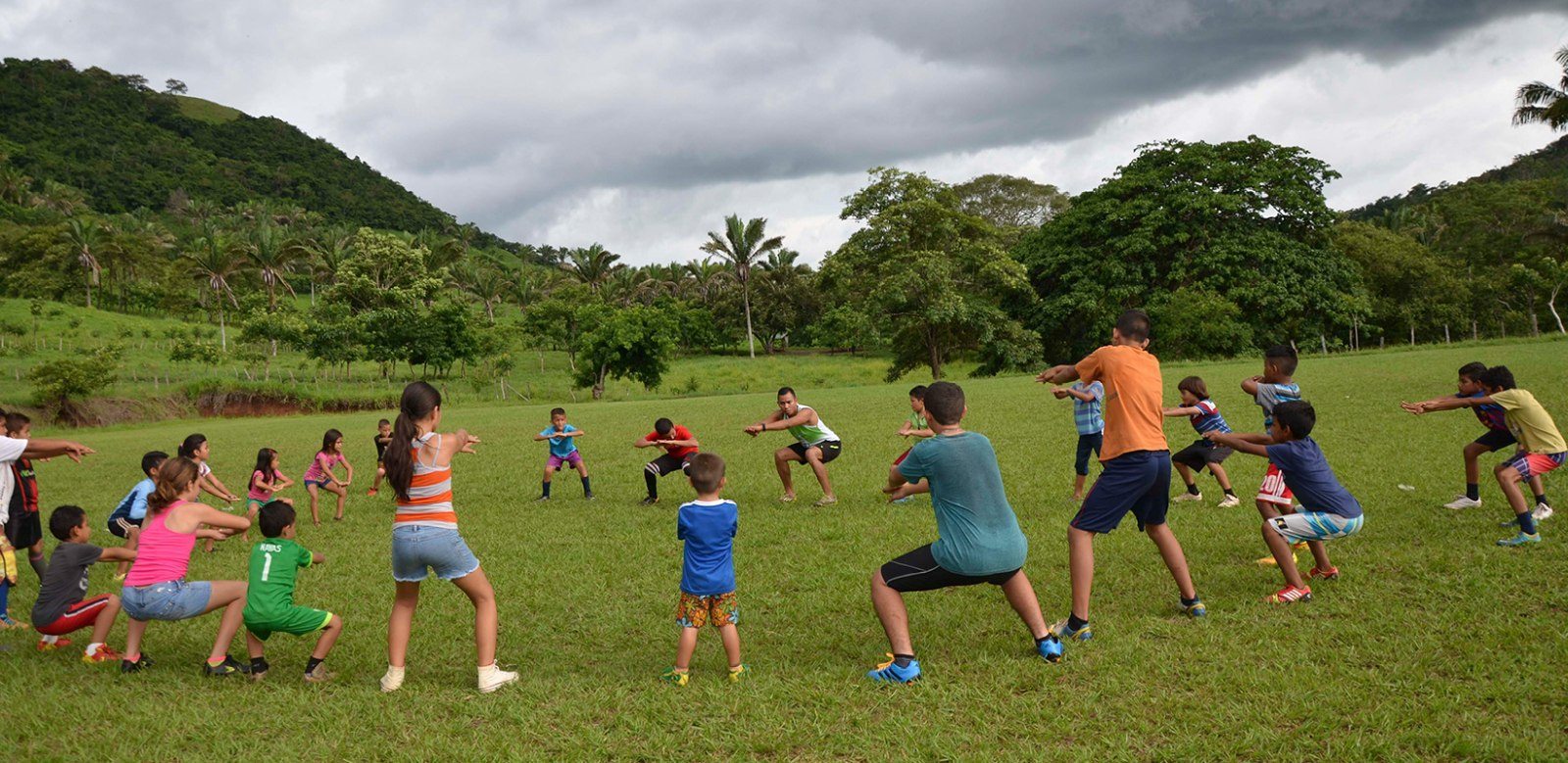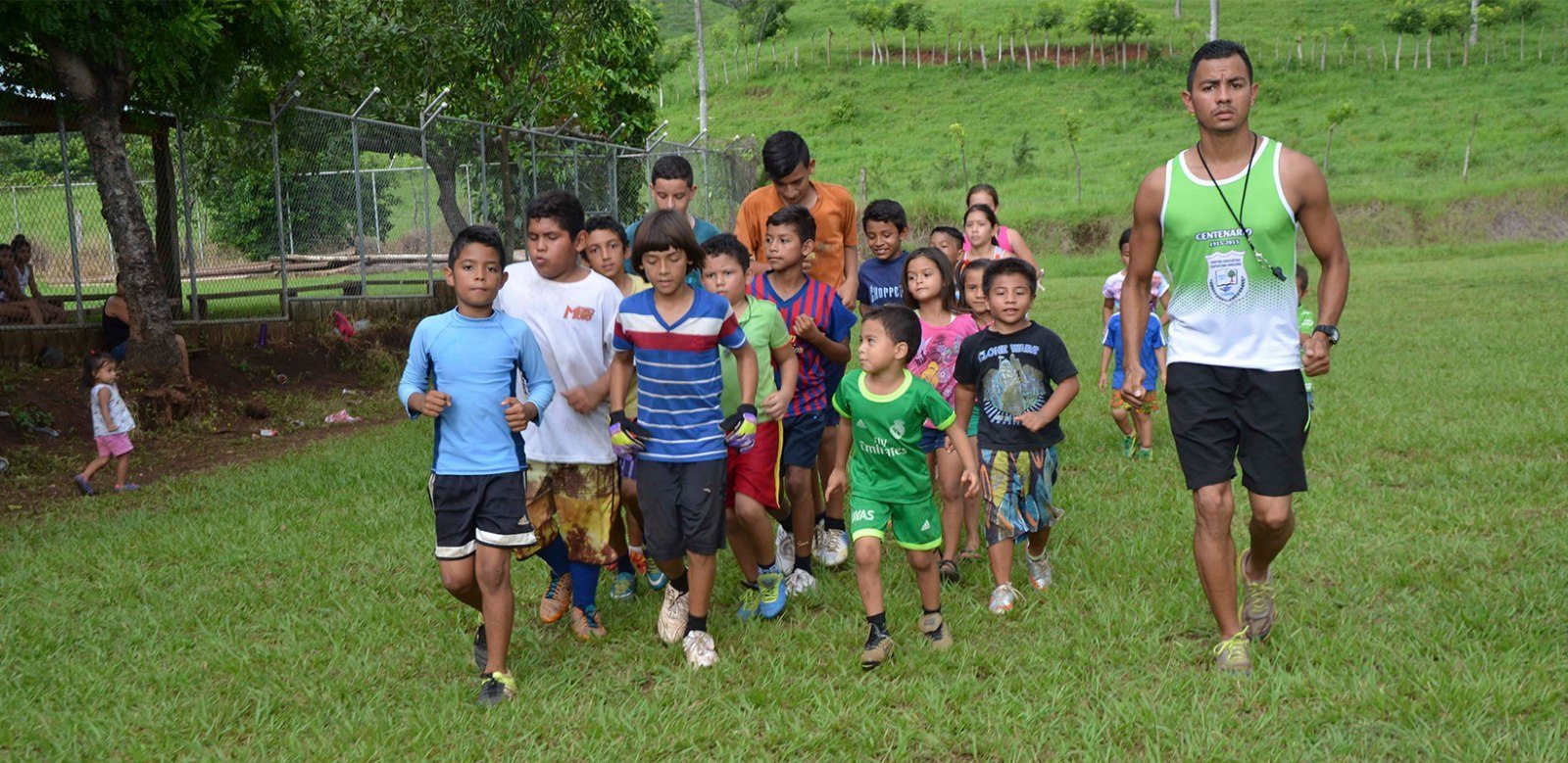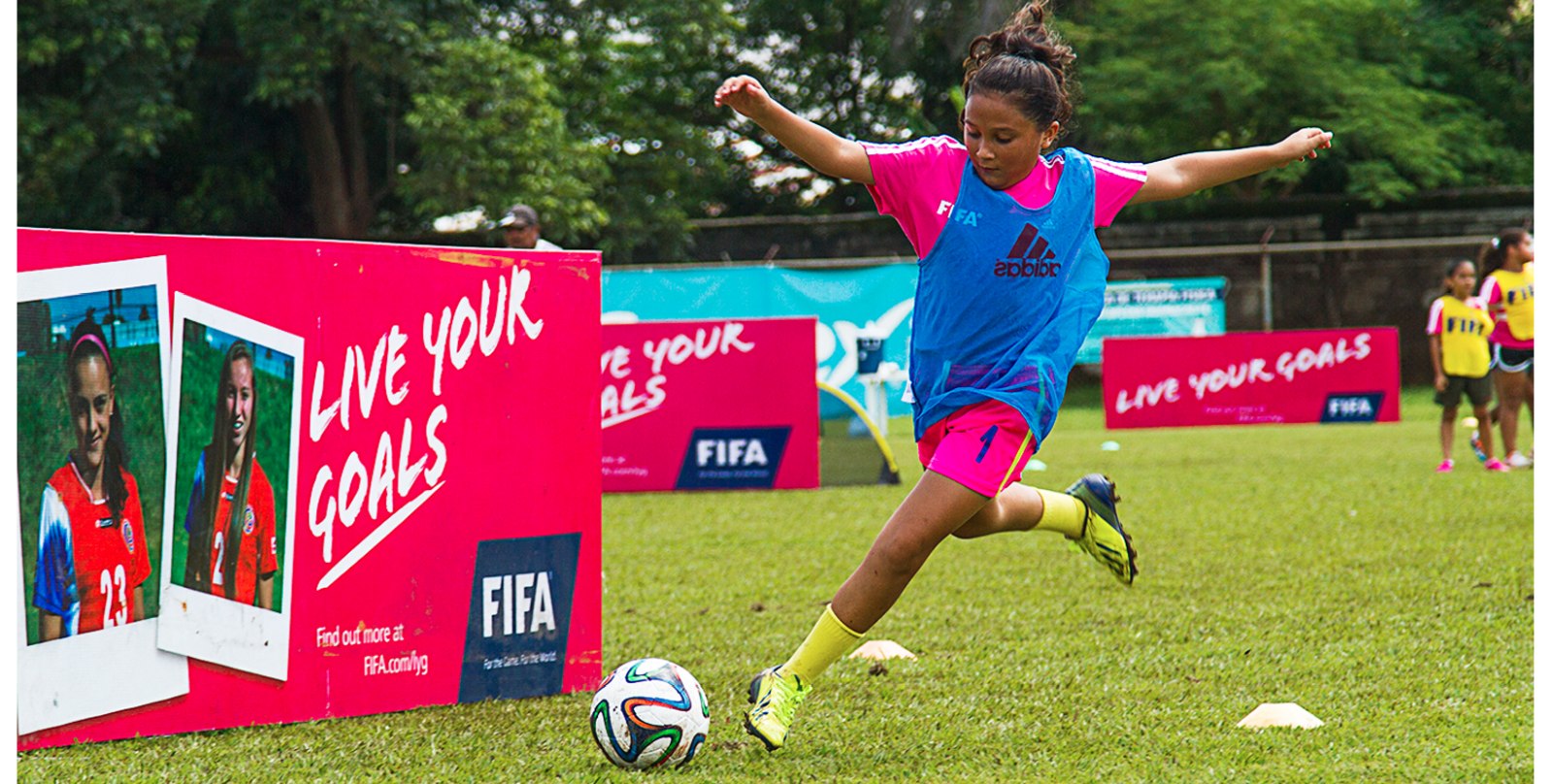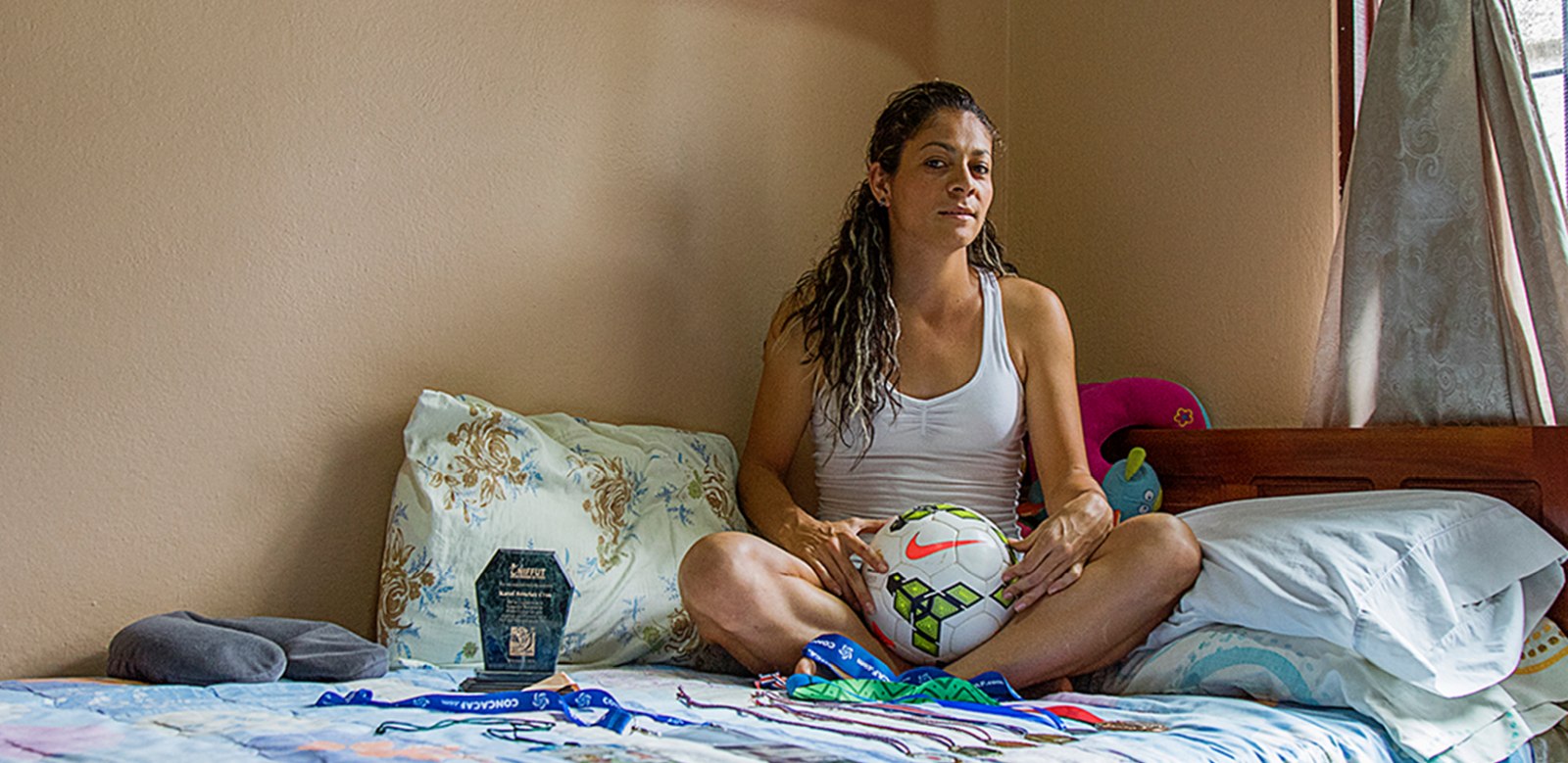
It’s 4 p.m. on a Thursday afternoon in June, and a heavy rainstorm has soaked everything in sight. In the Nicoya town of El Portal de Belén, el profe, as Casa Presidencial guard Mauricio Miranda is known, delivers the order: “Tell all the kids I want them in the plaza in eight minutes.”
“Yes, sir,” answers Iker Miranda militantly as he mounts a bicycle to deliver the news. Shortly, a group of barefoot young kids wearing broad smiles invades the local football field and begins to run.
This weeklong ritual occurs every 15 days for the young guard, who swaps out his police uniform for shorts, a T-shirt and tennis shoes, and his pistol for a football. For two years Miranda, 28, has spent his weeks off to help train 32 budding young athletes.
He doesn’t do it for the recognition, Miranda says, but rather to make the kids happy. Like them, Miranda was raised in a low-income family, and he wants them to feel at home on the football field.
“Here these kids learn to socialize and discover what they want for their futures,” he says.

Not many cops are like Miranda in Guanacaste, says Luis Antonio Mendoza, the local head of the National Police. While many officers spend their working hours in preventive programs at local schools, few dedicate their free time to such activities.
Happiness isn’t Only about Football
A month ago, Miranda and his wife, Keilyn Caravaca (27), formed another group for those not interested in football. Agrupación Folclórica Nacume teaches folkloric dance to 15 couples aged 6 to 13, who practice every day at 1:30 p.m.
Caravaca takes charge of both the football team and the dance group while her husband is back in San José. The respect she receives from all the children comes from her ability to make them smile, she says. It’s a mother’s love.
“These cultural activities allow the kids to express their feelings and emotions, and they help to improve self-esteem,” Caravaca says.
Financial resources are always limited, but friends help out by donating footballs and other items. The couple currently is looking for sponsors to buy team uniforms. Parents of dance group members, meanwhile, cover the costs of traditional costumes.
The parents of kids in these programs say they have noticed a change in behavior thanks to the activities, including an ability to better get along with others.
One mom, Kemberly Montero, says her son’s grades improved after he began participating in sports and dancing. He now sets his own goals and finishes homework on his own.
Other parents have noticed similar changes, saying that thanks to the programs, their children are more disciplined and willing to help out with chores at home.
Come rain or shine, says Miranda proudly, the kids are never late to the football field or the dance hall.







Comments